Vitamin C Potential
Vitamin C can be obtained through our diet from fruits, vegetables and/or supplementation.
Also referred to as ascorbic acid or ascorbate. It is a very well research nutrient and performs many wonderful benefits. An essential nutrient as our bodies do not make this vitamin, so consuming enough is important for various health reasons.
The RDA (Recommended Dietary Allowance) for Vitamin C is 90mg per day for men and 75mg for women.
I feel this ‘allowance’ is at the rock bottom range as it certainly doesn’t give one’s body enough for optimal health function. The brain and adrenal glands is where much of Vit C is needed, concentrations are up to as much as 15 to 50 time higher concentration of vitamin C than found in the blood.
It is an important antioxidant and an enzyme ‘’co-factor’ for many crucial biochemical functions. And the cardio-vascular system is dependent on sufficient vitamin C as is the skin, which is the largest organ in the body.
So Vitamin C serves the body in many ways:
- Helps promote Circulation
- Support Optimum Immunity.
- Supports Bile Production.
- Healthy Digestion and Intestines.
- Collagen Production.
- Supports T4 to T3 conversion rates in Thyroid Gland.
- Lessens Bloating.
- Helps balance out the pH in your gut.
- Supports the gut Flora growth.
- Helps prevent periodontal disease.
- Helps prevent upper respiratory infections/colds.
- Helps prevent seizure disorders.
- Helps prevent sepsis (blood infections).
Some symptoms of Vit C deficiency.
- Bleeding gums
- Joint/bone pain.
- Muscle aching.
- Easy bruising.
Risks Factors Of Vitamin C Deficiency
- Poor diet, including low consumption of fruits and vegetables
- Tobacco smoking (each cigarette oxidizes about 40-60 mg of vitamin C)
- Air pollution exposure
- Heavy metal exposure (lead, mercury)
Supplementation Sources of Vitamin C
Ascorbic acid, Liposomal Vit C, Vitamin C with Bioflavoinds, IV Vitamin C, are all various ways to reach a correct dosage for your current health status.
Some Top Food sources of Vitamin C
Fruit Sources:
- Acerola Cherry.
- Kiwifruit
- Strawberries,
- Blackcurrants
- Ctirus
- Payapa
Vegetable sources:
- Bell Pepper.
- Broccoli.
- Kale
- Snow Peas.
- Tomatoes.
I would like to stress that food sources should be organic as possible, we want to minimize our ingestion of toxicity, herbicides, pesticides, GMO’s etc. Poor commercial farming practices are now the reason we must supplement to keep our bodies in good strength and the immune system in top condition to fight off dis-eases and other conditions that may come our way.
Vitamin C Complex
H2 Acerola Cherry!
As a top supplementation source, which is now needed, the H2 Acerola Cherry is a must have source. It is reinforced with Hydrogen Ion via the patented ARP Technology, which activates once it connects with water to amplify the bio-availability, absorption and effectiveness of the Acerola Cherry.
It is a complex Vitamin C which means it is a wholefood Vitamin C and carries many other benefits than just ascorbic acid. Complex Vitamin C is a complete food with other various nutrients, i.e other vitamins, minerals, enzymes that assist the Vitamin C and your body with other various actions.
To source the H2 Acerola Cherry in NZ, You can order Here
To Source the H2 Acerolc Cherry OUTSIDE NZ, Click Here
Dosages:
Vitamin C a great safety profile, however in regards to dosage, each one is individual in their requirements. it is recommended that a minimum of 3000mg.
For example, many animals like humans are not able to self-produce Vitamin C, so also must get from their diet, gorillas are incapable of self-producing vitamin C, but consume approximately 4,500mg/day of vitamin C. In contrast, goats are capable of self-producing vitamin C and can produce up to 100,000mg/day of vitamin C in times of stress and rarely ever get sick.
For humans to achieve optimal health, especially in times of stress and in combating illness, effective high-dose vitamin C supplementation is a necessity.
A general baseline for vitamin C supplementation is between 3,000 to 5,000mg/day in divided doses, reducing the dose if loose stool develops. It is essential to remember that the dosage is variable based on the person and the condition being treated. Requirements for some may be as high as 10,000mg or more per day. Oral dosing is limited by diarrhea. High doses of vitamin C may require IV therapy. Individuals requiring extremely large doses of vitamin C will benefit greatly from IV therapy because it bypasses the gut so absorption is more efficient and tolerable.
**There is a need for high dose supplementation in times of acute illness like the flu and whooping cough, to prevent chronic illness like heart disease and high cholesterol, as well as to reduce oxidative damage during excessive stress or toxic exposure, like to mercury.
How Vitamin C can be measured in the body
There are two main ways vitamin C can be measured in the body. The first is a blood serum level. For women, normal levels are between 0.3-2.7 mg/dL while normal for men is 0.2-2.1 mg/dL. The second is checking vitamin C levels in white blood cells, or leukocytes. The reference range depends on the lab.
Risks Factors Of Vitamin C Deficiency
- Poor diet, including low consumption of fruits and vegetables
- Tobacco smoking (each cigarette oxidizes about 40-60 mg of vitamin C)
- Air pollution exposure
- Heavy metal exposure (lead, mercury)
References:



